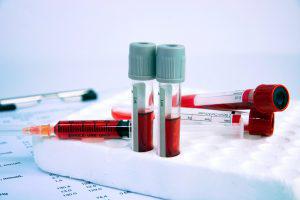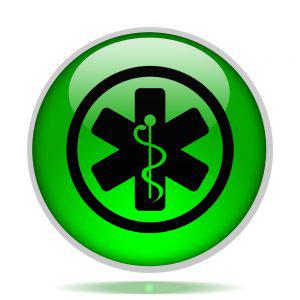Prescriptions for testosterone have become big business in America, but doctors and researchers disagree on whether it’s safe or not.
A Testosterone Boost May Restore Many of Your Youthful Traits but Know the Possible Health Risks
 One elderly gentleman described the feeling when his sex drive began to diminish as he aged.
One elderly gentleman described the feeling when his sex drive began to diminish as he aged.
“It was like becoming unchained from a maniac,” in what has been described as a mixture of relief and nostalgia.
He didn't discuss testosterone replacement therapy, but an ever-increasing number of over-50 men are determined to reconnect with their personal maniac.
Video Link: https://vimeo.com/289154064
Video Download: Click Here To Download Video
Video Stream: Click Here To Stream Video
Testosterone Replacement Therapy = Big Business
Across America, a chain of 49 (and growing) clinics referred to as “Low T Centers” have sprung up to handle the demand, promising “power, performance, and passion.”
The number of prescriptions for testosterone in America has skyrocketed ten times between 2000 and 2011.
Low T currently serves 45,000 patients at an average price of $400 a month — no question about it. Testosterone replacement therapy is a big business.
Low T is just the latest solution for the missing maniac that stretches back in time...way, way back.
It was Socrates who first noticed him.
Other attempts to regain that thriving, youthful libido have included “garlic and fresh coriander in neat wine” and extract of the testicles of monkeys.
Testosterone is the hormone responsible for the male (and female) sex drive.
It also supplies some other benefits such as building muscle and bones and providing energy and drive.
It’s easy to understand the attraction of merely rubbing testosterone gel on your arm or leg to replace what you are missing when natural production drops off.
This drop-off in natural testosterone production begins around age 30 and accelerates as you head into your sixties.
Why Doctors are Skeptical of Testosterone Boosts
Doctors disapprove of male HRT as a way to recover lost vigor.
Medical guidelines state that you are only eligible if you have a severe deficiency (known as hypogonadism), which comes with increased flab, muscle weakness, fatigue, and depressed mood.
A blood test can tell if you are within the normal range of 350ng/dL to 1,000ng/dL.
But only if you have both the symptoms and you’ve dropped below 150 ng/dl do you qualify for a prescription.
do you qualify for a prescription.
Low T and other private clinics operate in the gray area between 150 ng/dL and 350 ng/dL.
Until recently, your prescription would come with an ominous warning about possible side effects, which include heart attack or stroke and prostate cancer.
Some doctors have been particularly concerned about hormone replacement ever since an increased risk of heart attack showed up with female HRT in the first big placebo-controlled trial in 2002, which was after doctors had been recommending it to all menopausal women for years.
The Testosterone Evidence is Questioned
Recently, several large trials have concluded that the risks of supplementing with testosterone replacement therapy have been exaggerated.
Rather than being a cause of cardiovascular problems, it looks like it may actually lower your chances of developing cardiovascular problems in the first place.
At a conference in London last October organized by the UK’s most persistent promoter of the benefits of testosterone, Dr. Malcolm Carruthers, delegates heard a more positive story.
 “Testosterone therapy increases blood flow to the heart, improves angina and actually lowers risk factors such as cholesterol, high blood pressure, and blood clotting factors,” said Professor Tom Trinick, consultant general physician at Ulster Hospital.
“Testosterone therapy increases blood flow to the heart, improves angina and actually lowers risk factors such as cholesterol, high blood pressure, and blood clotting factors,” said Professor Tom Trinick, consultant general physician at Ulster Hospital.
A researcher at Klinikum Braunschweig in Germany found precisely these benefits in a study of 261 patients followed for five years; they also lost weight.
Such results have made testosterone replacement even more controversial.
In February last year, an article in the British Medical Journal called for a ‘black box’ warning to be placed on testosterone packaging following a study of 55,000 men by the American National Institutes of Health, which found that testosterone doubled their risk of a heart attack.
However, other hormone experts, such as Dr. Scott Hackett of Birmingham Heartlands Hospital, responded by pointing out serious flaws in the way the study had been done.
Then, last summer, a study at the University of Texas of 25,000 older men who had been on testosterone for up to eight years found no increase in the risk of a heart attack at all.
Even Global Regulators Disagree
If you're a tad bit confused, join the crowd. So are the doctors and the regulators.
 Currently, both the American Food and Drug Administration (FDA) and the European Medicine’s Agency say that there is no consistent evidence that testosterone supplements are linked to an increased risk of heart disease.
Currently, both the American Food and Drug Administration (FDA) and the European Medicine’s Agency say that there is no consistent evidence that testosterone supplements are linked to an increased risk of heart disease.
But the Canadian drug watchdog, Health Canada, warns that testosterone can cause life-threatening heart problems.
Who to believe?
Your choice.
More evidence that testosterone could protect against heart problems came last October from a study of patients with prostate cancer who were being given the standard prostate cancer treatment, namely a drug that slashes their production of the hormone.
Researchers at Harvard Medical School found that those who also had some form of heart disease were three times more likely to die from it after having treatment to lower testosterone!
They May Have Been Getting the Standard Treatment for Prostate Cancer Wrong for Years
In fact, it is possible that the typical warning that testosterone could trigger prostate cancer may also be a mistake.
A small study by Dr. Abraham Morgentaler of Men’s Health Boston several years ago found that men with early signs of prostate cancer who were also getting testosterone for a year did not get worse as a result.
of Men’s Health Boston several years ago found that men with early signs of prostate cancer who were also getting testosterone for a year did not get worse as a result.
“Clearly, the traditional belief that higher testosterone necessarily leads to rapid cancer growth is incorrect,” he says.
Is an Increased Libido Worth the Risk?
This is a question that every man must answer for himself.
However, it is of vital importance for any man considering testosterone replacement therapy to look at all sides, then make an informed decision.
But consider this.
Imagine going to your physician complaining of feeling tired, lacking in drive, and with a vanishing libido, only to be told that testosterone probably wouldn’t do any good and would raise the risk of cardiovascular problems and that you would be better off exercising more and eating a healthy balanced diet.
This, believe it or not, was the advice of one doctor in a recent article about testosterone replacement therapy in the prestigious New England Journal of Medicine.
Many men would respond by saying something along the lines of "you can’t possibly know how I’d answer," and there is plenty of expert disagreement over the risks.
If testosterone made me feel better and look better and more youthful, I’d undoubtedly accept the risks and give it a try.
That’s what maniacs do.
Then find another doctor with a more open mind.
Contact our clinic. You are guaranteed to find doctors here with open minds!
Reference
Testosterone Resistance by Professor Malcolm Carruthers
Contact Us Today For A Free Consultation

- Adverse Effects of Testosterone Therapy in Adult Men: A Systematic Review and Meta-Analysis [Last Updated On: July 2nd, 2024] [Originally Added On: June 4th, 2010]
- Low Testosterone Levels, Foods That Increase Testosterone Levels wwwSelf-Improvement-Bible.com [Last Updated On: November 12th, 2023] [Originally Added On: May 30th, 2011]
- Low Testosterone in Men: The Next Big Thing in Medicine! - Abraham Morgentaler, MD [Last Updated On: May 7th, 2023] [Originally Added On: June 3rd, 2011]
- How To Determine Testosterone Levels By Looking At Your Ring Finger [Last Updated On: December 7th, 2017] [Originally Added On: June 30th, 2011]
- Prolab Horny Goat Weed Testosterone Booster Supplement Review [Last Updated On: November 23rd, 2023] [Originally Added On: July 19th, 2011]
- The Healthy Skeptic: Products make testosterone claims [Last Updated On: August 13th, 2024] [Originally Added On: September 11th, 2011]
- How To Naturally Increase Testosterone [Last Updated On: November 21st, 2023] [Originally Added On: September 28th, 2011]
- Testosterone Production - Video [Last Updated On: November 25th, 2024] [Originally Added On: November 20th, 2011]
- Testosterone makes us less cooperative and more egocentric, study finds [Last Updated On: January 23rd, 2018] [Originally Added On: February 1st, 2012]
- Testosterone makes us less cooperative and more egocentric [Last Updated On: January 24th, 2018] [Originally Added On: February 1st, 2012]
- Too much testosterone makes for bad decisions, tests show [Last Updated On: April 30th, 2025] [Originally Added On: February 1st, 2012]
- Today in Research: Testosterone's Negative Effects; Diet Soda Death [Last Updated On: January 2nd, 2018] [Originally Added On: February 2nd, 2012]
- Testosterone drives ego, trips cooperation [Last Updated On: December 2nd, 2017] [Originally Added On: February 4th, 2012]
- FDA approves BioSante/Teva's testosterone gel [Last Updated On: April 28th, 2025] [Originally Added On: February 15th, 2012]
- 'Manly' Fingers Make For Strong Jawline in Young Boys [Last Updated On: December 1st, 2017] [Originally Added On: February 15th, 2012]
- Teva, BioSante Win U.S. Approval for Testosterone Therapy [Last Updated On: December 10th, 2017] [Originally Added On: February 15th, 2012]
- BioSante Gains on Approval of Testosterone Gel: Chicago Mover [Last Updated On: January 8th, 2018] [Originally Added On: February 16th, 2012]
- BioSante soars following drug approval from FDA [Last Updated On: December 26th, 2017] [Originally Added On: February 16th, 2012]
- Antibodies, Not Hard Bodies: The Real Reason Women Drool Over Brad Pitt [Last Updated On: December 24th, 2017] [Originally Added On: February 21st, 2012]
- Almark Publishing Releases Book From Mark Rosenberg, M.D. Revealing Natural Discoveries Associated With Low ... [Last Updated On: May 3rd, 2025] [Originally Added On: February 28th, 2012]
- Testosterone Replacement Clinic Comes to Kansas City with Potential to Help Thousands of Men [Last Updated On: May 2nd, 2025] [Originally Added On: March 1st, 2012]
- Study examines the relative roles of testosterone and its metabolite, dihydrotestosterone in men [Last Updated On: December 2nd, 2017] [Originally Added On: March 7th, 2012]
- The Role of 5{alpha}-Reductase Inhibition in Men Receiving Testosterone Replacement Therapy [Editorial] [Last Updated On: December 21st, 2017] [Originally Added On: March 7th, 2012]
- Effect of Testosterone Supplementation With and Without a Dual 5{alpha}-Reductase Inhibitor on Fat-Free Mass in Men ... [Last Updated On: January 3rd, 2018] [Originally Added On: March 7th, 2012]
- Why We Like Men Who Can Keep Their Cool [Last Updated On: December 30th, 2017] [Originally Added On: March 7th, 2012]
- Testosterone And Heart Health [Last Updated On: May 1st, 2025] [Originally Added On: March 10th, 2012]
- Your Life on Testosterone: Overly Sure of Yourself, Unwilling to Listen [Last Updated On: November 25th, 2018] [Originally Added On: March 15th, 2012]
- Mayo Clinic-TGen study role testosterone may play in triple negative breast cancer [Last Updated On: December 8th, 2017] [Originally Added On: March 23rd, 2012]
- A dose of testosterone might not cure what ails you [Last Updated On: January 23rd, 2018] [Originally Added On: March 25th, 2012]
- Green tea could aid athletes hide testosterone doping [Last Updated On: December 16th, 2017] [Originally Added On: March 25th, 2012]
- TGen Study Role Testosterone May Play in Triple Negative Breast Cancer [Last Updated On: December 6th, 2017] [Originally Added On: March 26th, 2012]
- Testosterone low, but responsive to competition, in Amazonian tribe [Last Updated On: January 23rd, 2018] [Originally Added On: March 28th, 2012]
- Competition-linked bursts of testosterone are fundamental aspect of human biology, study of Amazonian tribe suggests [Last Updated On: December 25th, 2017] [Originally Added On: March 28th, 2012]
- Playing football boosts testosterone levels by 30 percent! [Last Updated On: February 4th, 2024] [Originally Added On: March 28th, 2012]
- Testosterone low, but responsive to competition, in Amazonian tribe -- with slideshow [Last Updated On: December 9th, 2017] [Originally Added On: March 28th, 2012]
- The benefits of testosterone pellet therapy [Last Updated On: January 24th, 2018] [Originally Added On: March 29th, 2012]
- Low testosterone levels cause health woes [Last Updated On: November 25th, 2018] [Originally Added On: March 30th, 2012]
- Heart Failure Patients Getting Relief from Testosterone Supplements [Last Updated On: May 5th, 2025] [Originally Added On: April 21st, 2012]
- Study Finds Fatherhood Suppresses Testosterone [Last Updated On: May 4th, 2025] [Originally Added On: May 3rd, 2012]
- Low testosterone levels could raise diabetes risk for men [Last Updated On: January 26th, 2018] [Originally Added On: May 5th, 2012]
- Why low testosterone may increase your risk of diabetes [Last Updated On: November 25th, 2024] [Originally Added On: May 5th, 2012]
- Diabetes link to low testosterone [Last Updated On: November 25th, 2024] [Originally Added On: May 5th, 2012]
- Testosterone Linked to Weight Loss in Obese Men [Last Updated On: January 2nd, 2018] [Originally Added On: May 11th, 2012]
- Testosterone may help weight loss [Last Updated On: November 25th, 2024] [Originally Added On: May 11th, 2012]
- Testosterone-fuelled infantile males might be a product of Mom's behaviour [Last Updated On: December 25th, 2017] [Originally Added On: May 11th, 2012]
- Testosterone-fueled infantile males might be a product of Mom's behavior [Last Updated On: January 6th, 2018] [Originally Added On: May 11th, 2012]
- Testosterone supplements may help obese men lose weight [Last Updated On: January 5th, 2018] [Originally Added On: May 11th, 2012]
- Testosterone supplements 'can help men lose their middle-aged spread' [Last Updated On: November 25th, 2024] [Originally Added On: May 12th, 2012]
- Some doctors question safety of testosterone replacement therapy [Last Updated On: January 20th, 2018] [Originally Added On: May 15th, 2012]
- Health Canada Approves New Testosterone Topical Solution for Men [Last Updated On: May 15th, 2025] [Originally Added On: May 15th, 2012]
- Environment trumps genes in testosterone levels, study finds [Last Updated On: May 8th, 2025] [Originally Added On: May 15th, 2012]
- Global Testosterone Replacement Therapy (TRT) Industry [Last Updated On: May 7th, 2025] [Originally Added On: May 21st, 2012]
- Testosterone Fuels Boom, Swindler Sows Panic: Top Business Books [Last Updated On: January 13th, 2018] [Originally Added On: June 2nd, 2012]
- Increase in testosterone drug use [Last Updated On: April 12th, 2018] [Originally Added On: June 4th, 2012]
- Testosterone Promotes Agression Automatically [Last Updated On: January 29th, 2018] [Originally Added On: June 9th, 2012]
- Testosterone shown to help sexually frustrated women [Last Updated On: January 27th, 2018] [Originally Added On: June 9th, 2012]
- Research and Markets: Testosterone Replacement Therapy (TRT) - Global Strategic Business Report [Last Updated On: December 23rd, 2017] [Originally Added On: June 12th, 2012]
- Proposed testosterone testing of some female olympians challenged by Stanford scientists [Last Updated On: January 30th, 2018] [Originally Added On: June 14th, 2012]
- Testosterone Makes Bosses Into Jerks, Says Paul Zak [Last Updated On: January 8th, 2018] [Originally Added On: June 14th, 2012]
- Testosterone Therapy: A Misguided Approach to Erectile Dysfunction (ED) [Last Updated On: May 10th, 2025] [Originally Added On: June 20th, 2012]
- New drugs, new ways to target androgens in prostate cancer therapy [Last Updated On: January 8th, 2018] [Originally Added On: June 20th, 2012]
- Long-term testosterone treatment for men results in reduced weight and waist size [Last Updated On: January 19th, 2018] [Originally Added On: June 23rd, 2012]
- Declining testosterone levels in men not part of normal aging, study finds [Last Updated On: December 27th, 2017] [Originally Added On: June 23rd, 2012]
- Low testosterone not normal part of aging [Last Updated On: December 22nd, 2017] [Originally Added On: June 25th, 2012]
- Testosterone Does Not Necessarily Wane With Age [Last Updated On: December 6th, 2017] [Originally Added On: June 25th, 2012]
- Overweight men can boost low testosterone levels by losing weight [Last Updated On: December 10th, 2017] [Originally Added On: June 25th, 2012]
- Testosterone-replacement therapy improves symptoms of metabolic syndrome [Last Updated On: January 14th, 2018] [Originally Added On: June 26th, 2012]
- Testosterone therapy takes off pounds [Last Updated On: December 11th, 2017] [Originally Added On: June 26th, 2012]
- Weight loss may boost men's testosterone [Last Updated On: May 9th, 2025] [Originally Added On: June 27th, 2012]
- Low Testosterone? Study finds age may not be to blame [Last Updated On: May 12th, 2025] [Originally Added On: July 1st, 2012]
- Do you have low testosterone? [Last Updated On: December 15th, 2017] [Originally Added On: July 8th, 2012]
- Wall Streeters Buying Testosterone for an Edge [Last Updated On: May 11th, 2025] [Originally Added On: July 12th, 2012]
- Beefy Wall Street Traders rub on testosterone [Last Updated On: February 20th, 2024] [Originally Added On: July 12th, 2012]
- Tale of two runners exposes flawed Olympic thinking [Last Updated On: December 23rd, 2024] [Originally Added On: July 19th, 2012]
- Genetic markers for testosterone and estrogen level regulation identified [Last Updated On: January 6th, 2018] [Originally Added On: July 20th, 2012]
- BUSM researchers identify genetic markers for testosterone, estrogen level regulation [Last Updated On: December 18th, 2017] [Originally Added On: July 20th, 2012]
- DRS. OZ AND ROIZEN: How to reap the benefits of normal testosterone levels [Last Updated On: December 23rd, 2024] [Originally Added On: July 21st, 2012]
- How Testosterone Drives History [Last Updated On: December 24th, 2024] [Originally Added On: July 22nd, 2012]
- Testosterone replacement is "fountain of youth" for men [Last Updated On: January 3rd, 2018] [Originally Added On: July 27th, 2012]
- Pill for low testosterone in men heads for phase II clinical trials [Last Updated On: December 31st, 2017] [Originally Added On: August 2nd, 2012]
Word Count: 1161




















